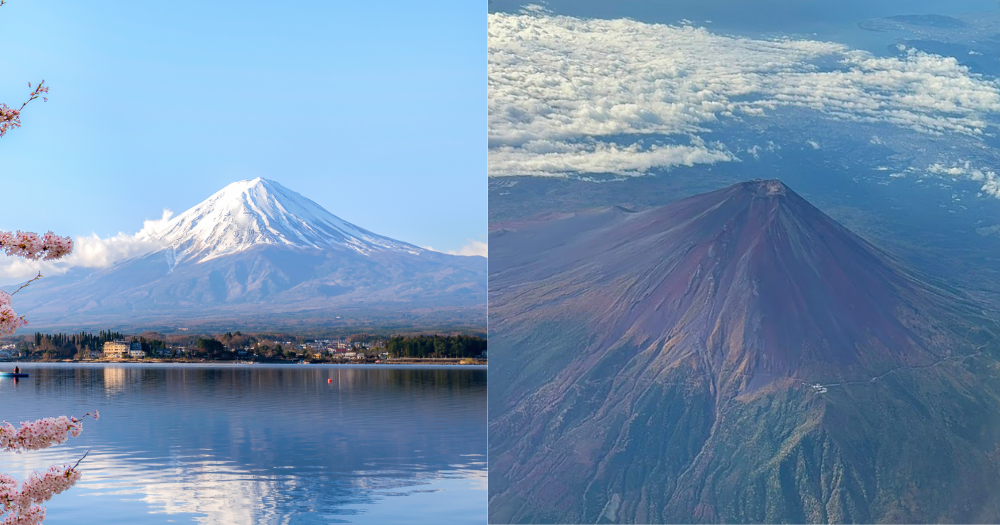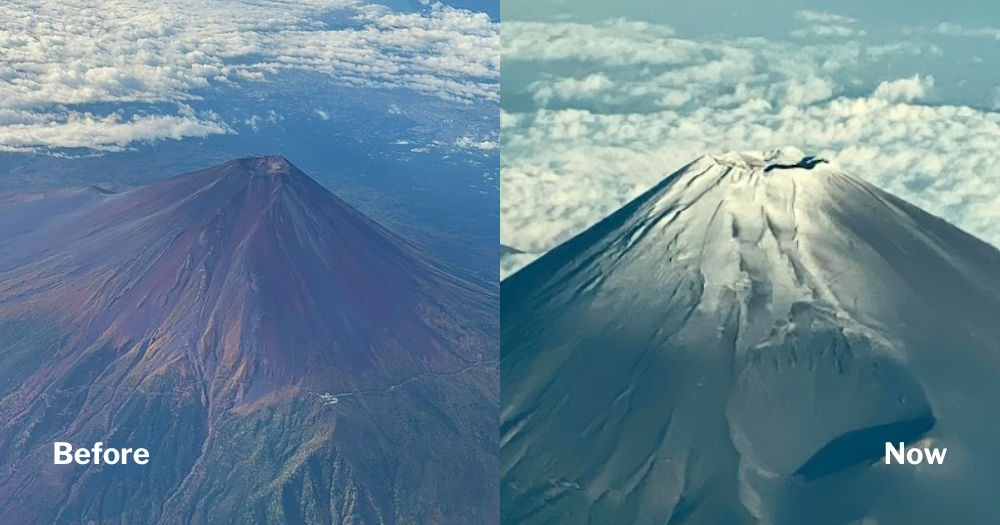Japan's Mount Fuji remains snowless for the longest time in 130 years
In 2023, snow was first detected on Oct. 5.

Mount Fuji, Japan’s tallest mountain, has remained snowless longer than it has in the past 130 years.
According to The Japan Times, the active volcano's snowcap usually begins forming on Oct. 2 on average, with 2023's first snowfall detected on Oct. 5.
However, it's now November, and the iconic snow cap mountain is still missing its cape, sounding alarm bells for all alike.
Forecaster Yutaka Katsuta of Kofu Local Meteorological Office shared with The Japan Times that the phenomenon was attributed to the warm weather this year.
Explaining that high temperatures in the summer had continued into September, deterring cold air, Katsuta shared that this has beaten the past record of Oct. 26 as the latest recorded date of snowfall — which had occurred twice before in 1955 and 2016.
Fuji is, for most of the year, covered by snow — save for the July to September hiking season, which draws around 200,000 climbers annually.
Snow forecasted for early November
However, snow is finally expected to cover Fuji's peaks from Nov. 7.
According to the Japan Weather Association's weather forecast website, rain will likely fall in the Kanto region on Nov. 6, after which cold air will move in and change from rain to snow in the mountainous regions.
Urging visitors to take precautions against the cold, the weather association also stated that minimum temperatures will be in the single digits for the first time this season.
Erratic weather patterns due to climate change
Katsuta further shared that climate change might have a degree of impact on the delay in the snowcap's formation, reported The Guardian.
In July, Japan experienced its hottest summer ever recorded since 1989, leaving both locals and tourists alike to experience the wrath of the heat waves.
Japan's average temperature is expected to rise by 4.5°C by the end of the century if no mitigation measures are taken.
More stories on Mount Fuji
Top image from Google Maps and Canva
MORE STORIES





















